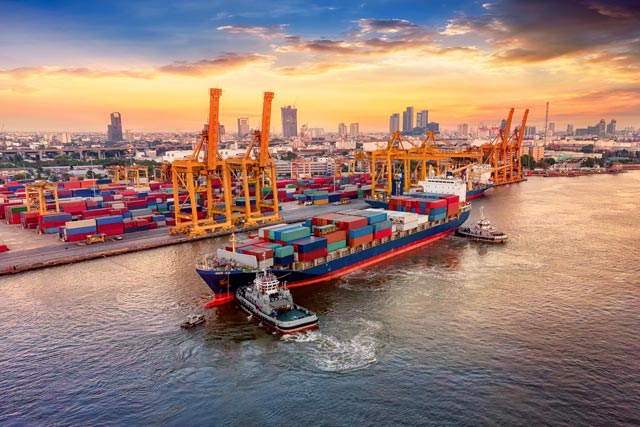- UK business insolvencies are expected to hit a 12-year high, peaking at 43% above pre-covid levels, with sectors like construction, hospitality, and retail most affected.
- The UK is part of a broader trend, with global business insolvencies expected to rise by 11% in 2024, affecting major industries and large companies across Western Europe.
- Businesses face ongoing challenges from Brexit, inflation, and monetary tightening, but gradual relief is expected with interest rate cuts in 2025
Summary
Key Takeaways
UK insolvencies are set to reach new heights in 2024, with over 29,000 companies expected to fail—a year-on-year increase of 5% and the highest figure in 12 years according to our Global Insolvency Report. The construction, trade, and hospitality sectors are among the hardest hit, accounting for 18%, 15%, and 14% of total insolvencies, respectively.
Businesses have faced a series of shocks, from Brexit and the Covid-19 crisis, to rising interest rates sticky inflation. However, there are signs that insolvencies are at their peak. As inflation eases and interest rate cuts take effect, it should provide relief for UK businesses, with insolvencies expected to decrease by 6% in 2025 and a further 2% in 2026.
Despite this, insolvency levels remain high. By the end of 2024, UK insolvencies will likely be 43% above the 2016-2019 average, and they are expected to stay 30% above pre-pandemic levels until 2026. The percentage of fragile UK firms remains elevated at 12%, and ongoing geopolitical instability, coupled with delayed debt refinancing, limits the relief lower interest rates can provide. Non-payment risks are expected to remain high throughout 2025.
Global acceleration
The UK is not alone in facing a surge in business insolvencies in 2024. Globally, business insolvencies have risen by 9% year-to-date, with three-quarters of countries reporting an increase in the first half of the year. We expect global insolvencies to rise by 11% in 2024, with two-thirds of countries, including the UK, exceeding pre-pandemic levels. In Western Europe, insolvencies are projected to end the year 14% higher, or 22% above pre-pandemic levels.
The rise is widespread, with few sectors escaping this upward trend. Construction, retail, and services have seen the largest increases in both the number and size of bankruptcies. In the UK, around 5,000 construction and real estate firms, and 4,000 retail and automotive businesses, are expected to go under this year. Approximately 172,000 jobs in the UK are at risk in 2025, while over 1.1 million jobs are at risk across Europe.
Large companies are also increasingly vulnerable, heightening the risk of a domino effect, where business failures cascade down supply chains. Major global insolvencies (companies with over EUR50mn in turnover) reached a new peak in Q2 2024, with 110 cases, up 23% in the first half of the year. Western Europe leads with 127 major insolvencies in the first half of 2024, 51 more than last year, with a combined turnover of EUR96bn.
From our experts to your inbox
– never miss a thing
Payment risks to persist
As the UK Budget approaches on 30th October, the UK economy is showing signs of recovery. GDP growth is forecast to rise to 1.7% in 2025, up from 1% this year, before easing to 1.3% in 2026. Inflation is now back below the Bank of England's 2% target, having fallen to 1.7% in the year to September, the lowest rate in three-and-a-half years This opens the door for accelerated rate cuts, with the BoE expected to reduce rates by 25bps at each meeting from November 2024, stabilising at 3% by August 2025 (previously forecasted at 3.25%).
However, lower interest rates are not a silver bullet. A significant portion of corporate debt will mature by 2026, and the full benefits of lower rates may not materialise until late 2025. Highly leveraged sectors will remain under pressure, sustaining high insolvency rates.
In terms of business financing, we foresee limited relief. Global restocking will require companies to mobilise financial resources, with buyers likely to extend payment terms, heightening working capital requirements (WCR). As of mid-2024, global WCR had only slightly improved, reducing by just one day year-on-year to 82 days, despite the global destocking.
How can you safeguard your businesses amid growing insolvencies
In response to a rising threat from insolvencies, many businesses rely on trade credit insurance as a vital safeguard against potential losses arising from non-payment or default by customers. Trade credit insurance provides your businesses with financial protection and peace of mind by indemnifying you against losses incurred due to insolvency or protracted default. By using the services of an insurer such as Allianz Trade, your company will have access to deep insight into the creditworthiness of your suppliers worldwide, expertise in areas such as risk and cash flow management, and an assurance that you will be paid in full if buyers go under. That safeguards the business’s cash flow, maintains its liquidity, and sustains uninterrupted operations, even in the face of widespread insolvencies.
To find out more about market-leading trade credit insurance from Allianz Trade, contact our specialist team for a free consultation on 0800 056 5452, or get a free online quote today.
You might also be interested in…
Counting the cost of new import controls
Allianz Trade Global Survey 2024
Rocky road ahead as UK insolvencies set to peak
Let's talk...
For a free credit insurance consultation call our UK team, 09:00-17:00 Mon-Fri.

Our expertise and commitment
Allianz Trade is the global leader in trade credit insurance and credit management, offering tailored solutions to mitigate the risks associated with bad debt, thereby ensuring the financial stability of businesses. Our products and services help companies with risk management, cash flow management, accounts receivables protection, Surety bonds, Business Fraud Insurance, debt collection processes and e-commerce credit insurance ensuring the financial resilience for our client’s businesses. Our expertise in risk mitigation and finance positions us as trusted advisors, enabling businesses aspiring for global success to expand into international markets with confidence.
Our business is built on supporting relationships between people and organisations, relationships that extend across frontiers of all kinds - geographical, financial, industrial, and more. We’re constantly aware that our work has an impact on the communities we serve and that we have a duty to help and support others. At Allianz Trade, we’re strongly committed to fairness for all without discrimination, among our own people and in our many relationships with those outside our business.




